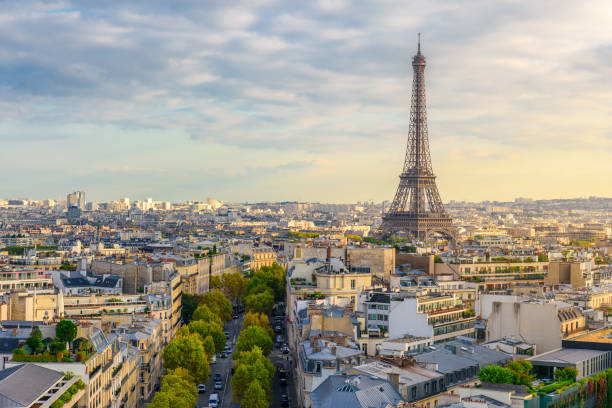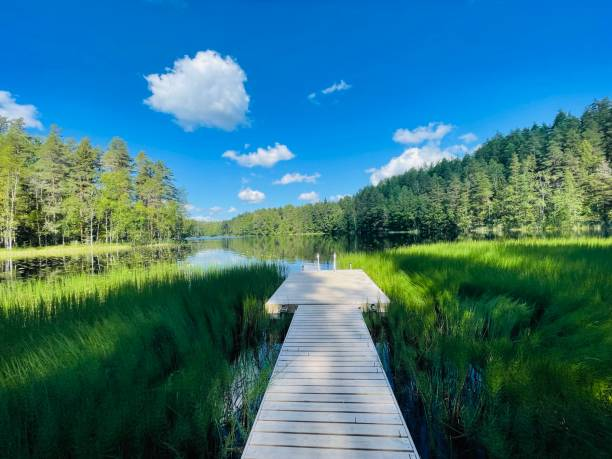Best Time to Visit France: Seasons & Travel Tips
- Hafeel Hafeel7
- 6 days ago
- 6 min read

France is among the most popular countries in the world, which attracts the attention of travelers by its extensive history, fine cuisine, romantic cities, and landscapes. Whether you are a street stone Parisian, a lavender-filled Provence or a bathing glamour French Riviera, there is something that will satisfy any type of traveler. But when you are planning your dream vacation to France there is everything to timing. Visiting France at the right time or the wrong time can determine either a good or a bad travel experience, as the weather is not the only factor that can lead to it; the crowds, prices and activities commonly available.
France has all four seasons in a very unique way and each of them presents a varying taste of French life. The spring is the season of flowers and warm climate, the summer is the season of festivals and beach, the autumn is the season of golden colors and the winter is the season of snowy wonderland Alps. In case you are planning your France tour or researching on different France tours packages, it is important to know what each season presents so that you can make specifics to your itinerary. In Go kites Oman, we assist the travelers in designing their tours to the French country according to their likes and dislikes, seasons and budget so that your trip is as good as the country itself.
Knowing the Climate and Seasons in France.
To know when is the appropriate time to visit France therefore it would be important to know the climatic zones as well as the seasonal patterns in France. France is also geographically diverse and the weather may differ greatly across geographical regions.
Northern France (Paris, Normandy, Brittany): Has a cool temperate maritime climate, which is cool in the winter with damp summers.
Eastern France (Alsace, Lorraine): It has a continental climate with warmer winters and summers.
Southern France (Provence, French Riviera): Has a Mediterranean climate, and is hot and dry in summer and mild in winter.
Mountain areas (Alps, Pyrenees): The alpine climate of the area is characterized by a lot of snow in winter and hot summers, which are best to hike.
Being aware of this climatic change will allow you to determine what kind of experience you would get out of traveling, be it spending time in a wine shop under clear skies, skiing in snow covered mountains, or walking through museums without people around.
Spring (March to May): Beauty of Blossoms and Fine Weather.
Many experienced travelers would agree that spring is the most appropriate time to go to France. It is the time of year when the temperatures are mild, flowers bloom, and tourists are not so many.
Why Visit in Spring:
It experiences average temperatures between 1010 o C to 2020 o C which is pleasant to sightseeing.
Gardens and parks such as Jardin des Tuileries in Paris or the Chatelet de Villandry are all in blossom.
There are beautiful wine areas like Bordeaux and Burgundy which have young vineyards.
The Easter celebrations and spring festivals are celebrated in the country.
Travel Tips for Spring:
The mornings and evenings are chilly, pack layers.
Exploit low prices on flights and accommodation.
Reserve early in advance of the places of interest since May may be more hectic.
Spring offers a good opportunity to have a peaceful, colorful experience in France and spend little as it is cold but not as crowded as summer.
Summer (June-August): Feasts, Sunshine and Energy.
July and August are the high season of tourist seasons in France particularly in summer. The nation is vibrant and the life outdoors is the best.
Why Visit in Summer:
Extended sunny intervals of between 20 o C and 30 o C.
French Riviera beach towns such as Nice, Cannes, and Saint-Tropez are bustling the most.
Many music, art and cultural festivals such as Bastille day on 14th July.
Additional weather would be perfect to hike in the Alps, kayak in Dordogne, or bike ride in Provence.
Travel Tips for Summer:
Book fittings and transportation much early.
Expect increased costs and congestion in the major attractions.
Keep hydrated and avoid the sun particularly in the south.
Summer might be the most suitable time to visit France in case you are fond of vivid energy, outdoor activities and do not dislike the crowds.
Autumn (September to November): Fall and Multicultural Diversity.
Autumn in France is an underrated season particularly among the cultural tourists and connoisseurs of food. The air is more cold, the crowds are less and the landscapes are golden and red.
Why Visit in Autumn:
Warm climates of 10 o C to 18 o C.
Grape picking season, Bordeaux, Champagne and Burgundy- all a wine tourism destination.
The reduced numbers of tourists will imply less artificial experiences and cheaper costs.
Cities are exposed to cultural life by autumn art and film festivals.
Travel Tips for Autumn:
Always have a light jacket or sweater in case of a cool evening.
Go to villages in countryside to observe harvest.
Use seasonal food in the French culture including truffles, chestnuts and wild mushrooms.
Autumn is a quiet and cozy season and that is why it can be regarded as one of the most underestimated periods of time to discover the French countryside and culture.
Winter (December to February): Christmas Magic and Winter Ski Trips.
The winter makes some parts of France to look like a fairytale and the most prominent ones are the Alps and Alsace regions. The coastal regions are warm, but the mountains and the northeast are covered with snow and are turned into wonderlands.
Why Visit in Winter:
Christmas markets in the cities of Strasbourg, Colmar and Paris.
The French Alps (Chamonix, Courchevel) has the world-class skiing and snowboarding.
Warm cafes, hot chocolate and winter French traditional food such as raclette and fondue.
Reduced number of tourists in big cities during the post holiday period.
Travel Tips for Winter:
Always bring warm clothes, and more so when traveling to the mountains.
Limitations to daylight sightseeing.
Museum hopping, cultural events, and indoor attractions should be used during this season.
Winter is also the best season when the tourists like festive ambiance, winter sports and less traffic in the popular cities.
Highlights by Season in the Region.
This can be a fast reference of what French regions are most spectacular in each season:
Spring: Loire Valley (château and gardens), Paris (romantic walks), Provence (wildflowers).
Summer: Normandy (coastline), French Riviera (beaches), Alps (hiking).
Fall: Bordeault and Burgundy (harvest time in wine), Alsace (fall foliage), Dordogne (country markets).
Winter: Alsace (Christmas markets), French Alps (ski resorts), Lyon (December Festival of Lights).
This list can assist you in aligning your travelling preferences with the best season so that you have the best experience during your adventure in France.
Bringing in festivals and events to plan.
March-May Easter celebrations, Foire de Paris, Cannes film festival (May).
June-August Bastille Day (July 14), Avignon Theatre Festival, Tour de France.
September-November: Heritage Days (Journées du Patrimoine) Montmartre Wine Harvest Festival.
December-February: Strasbourg Christmas Market, Lyon Festival of Lights, Paris Fashion Week (January).
Such events can be enhanced by attending them, and always book early since the places are usually occupied within the event dates of festivals.
France Travel Guide: Visiting France at any time.
No matter what time of the year you will be visiting France, here are some suggestions that will make your trip to France easy and enjoyable:
Get to know the general French courtesies; the locals will be glad.
Intercity traveling by train is fast and efficient.
Before boarding the metro or train, always check your ticket.
Bring along an electronic adapter.
Adhere to the local traditions, particularly in the countryside.
Be particularly keen on your bags in busy tourist destinations.
These tips guarantee you a healthy trip, regardless of the time of the year you will travel.
Seasonal Budgeting.
High Season (Summer): This is when flights, hotels and attractions are likely to be the most expensive.
Shoulder Seasons (Spring and Autumn): Good weather with medium prices, perfect match with the low-end travelers.
Low Season (Winter): Huge discounts on rooms (except in the ski resorts ) and less tourists.
In case you make a booking on Gokite Oman, they would assist you in tailoring packages of France tours to your preferences in respect of the time of the year that you are planning to visit.
Conclusion
The question of whether to travel to France during a particular time of the year will all come down to your own choice of traveling. Spring will be enjoyable to you in case you love flowers, nice temperatures, and lower number of crowds. Summer is ideal in case you like energetic and colorful activities, beach parties and festivals. Autumn is perfect when one wants to enjoy the warm atmosphere, vivid colors, and tasty food. And in case festive markets, snowy mountains and winter sports are appealing to you the month to visit is winter.
France is one of those countries where one gets to have memorable experiences throughout the year. Is it your first trip to France or a luxurious vacation with custom-made France tour packages, the right season will make every experience of your trip great. Be wise with your travel plans, and have reliable travel agents such as Gokite Oman assist you in a perfect plan. Whichever the time you visit, France will steal your heart because of its beauty, culture and charm, which are immortal.



Comments